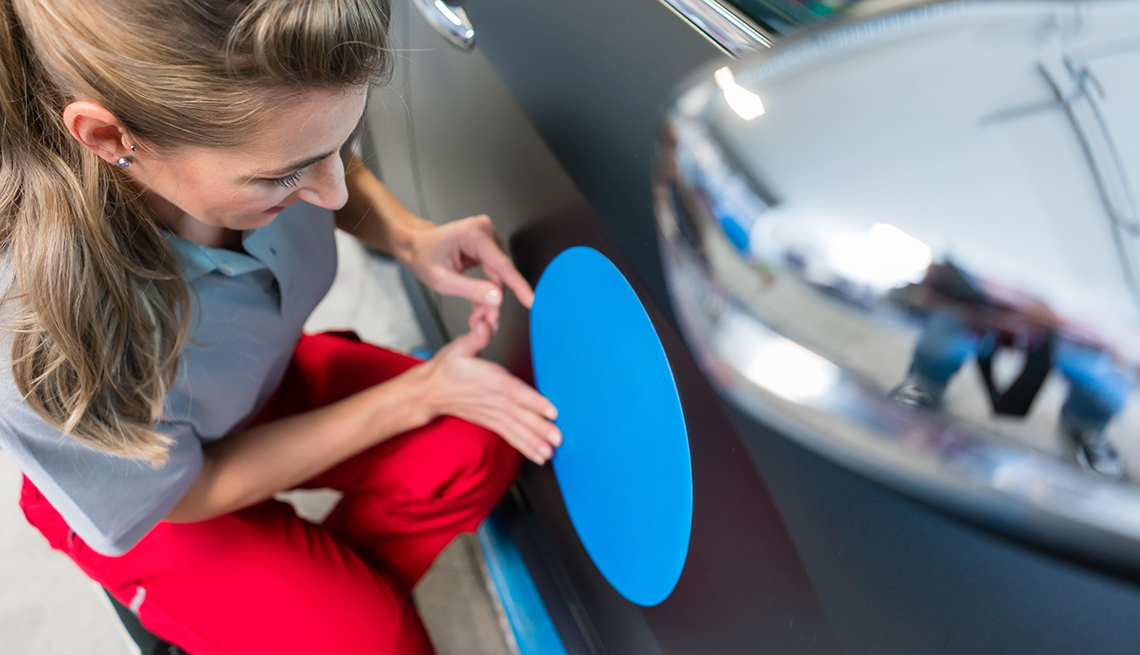Play all audios:
It sounds like Easy Street: Have your car wrapped in advertising for a beverage such as Red Bull or Dr Pepper or another popular brand. Drive around as you normally would while steering what
is akin to a billboard. If you're told you could earn about $400 a week, who wouldn't be tempted to rev up their engine? That money could cover a monthly car payment — and more.
But here's a reality check: These pitches are scams, the Better Business Bureau warned this week, saying there's been an uptick in these frauds, some purportedly for brands
including Utz snacks and Breyers ice cream. Some consumers are hit up multiple times a week. In a new trend, scammers also are trying to con boaters to take their bait by promising big bucks
to transform vessels into floating billboards, the bureau said. Even bicycle ads are being promoted. To be sure, some big firms use car wrapping to drive brand awareness and help sell more
stuff. But no legitimate business will do what the scammers do: After your “application” is approved, they send you a four-figure check in the mail, tell you to deposit it and then to
forward most of the funds via a cash app, for example, to a technician who supposedly will do the wrapping. The work never happens. The check is a slice of phony baloney — and once the bank
recognizes it, you are forced to pay back the bank in full and perhaps overdraft fees. The Better Business Bureau says banks tend to make funds from a deposited check available to you before
the money is actually transferred to your account. Since finding out about a bad check can take weeks, it's best to wait 30 days before spending money from concerning checks. AS STREET
SMART AS A COP In Des Moines, Iowa, Kenneth Darryl Page, 56, who works in road construction, liked the prospect of an extra $1,600 a month. His father texted him a link to a website where
Page applied to have Dr Pepper promotional ads wrapped around his 2020 Hyundai Tucson. The website, still active this week, says: “You can apply for this contract advertisement using your
car for our sticker advert. Please kindly take you time and read how the advertisement car wrap work." Phrasing and grammar a little awkward? Yes. Advert, by the way, is colloquial
British for “advertisement." People who visit the site and apply for the work are told to submit sensitive data, including date of birth and where they bank. That's a huge red
flag. Don't do it. “We do not have any program offering to wrap cars in advertising graphics in exchange for compensation for any of our brands.” — Keurig for Dr Pepper spokeswoman
After applying, Page received a letter postmarked in Philadelphia containing a cashier's check for $1,850.45 from a credit union in Omaha, Nebraska. All during the “deal,” he'd
been texting a phone number he later traced to California. The disparate locations made him suspicious, so he drove more than two hours to try to cash the check at the Omaha credit union.
There he was told the check was as worthless as funny money. And he never forwarded to the crook the $1,450 as directed to cover the wrapping. Page is no detective. But he calls himself
“very curious and very nosy and observant.” He kept good records — a “paper trail,” in his words — and felt the drive to the Omaha credit union was worth his trouble. He kept stalling the
scammer saying he hadn't deposited the check. Soon the bad actor disappeared. And you guessed it: His vehicle was never “wrapped." His advice to others? “Be overly cautious” when
confronted with dubious work-from-home opportunities.

